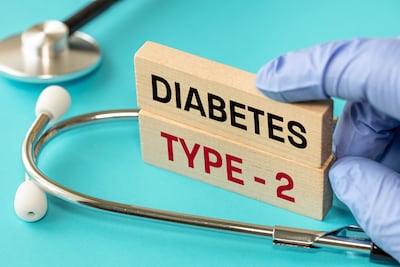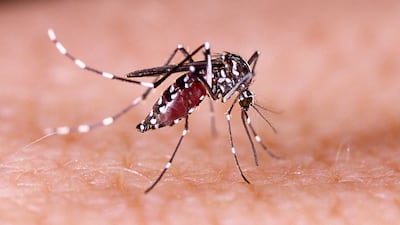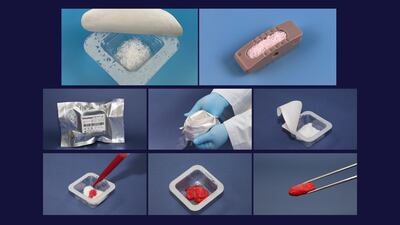Orthopedics
This week, Establishment Labs Holdings announced the FDA gave it premarket approval for Motiva breast implant, Cologuard lands FDA approval for Cologuard Plus and GE HealthCare gets FDA nod for a new imaging agent. The FDA announces another expansion for TAP into ophthalmology and radiology. The AAMI and CTA will join forces to develop standards for AI and ML-enabled health care products.
The US FDA has published a trio of draft guidance documents for its Assessment Scheme for Conformity Program, which began as a pilot in September 2020 to capitalize on the role of standards in the regulation of medical devices.
This week, Neuralink announced it received US FDA breakthrough device designation for a device to restore sight; medtechs Discure and DeepLook secured new funding; FDA pump recalls from B. Braun Medical and Fresenius Kabi; Axonics prevails in patent infringement lawsuit with Medtronic; Merit Medical buys Cook Medical for $210m.
UK-based Biocomposites will begin selling in the UK its next-generation osteoinductive bone graft substitute, NanoBone, which came with its acquisition of Artoss GmbH in June 2023. Meanwhile, the company has purchased remaining shares in the manufacturers of SYNICEM and Subiton antibiotic bone cements and preformed antibiotic-loaded spacers.
Inari Medical is updating use instructions for a clot-removing catheter due to the potential for serious adverse effects, including death.
The Acton, MA-based tubeless insulin pump specialist expands its indication for the Omnipod 5 AID system beyond type 1 diabetes as FDA authorization for type 2 comes sooner than Wall Street expected. Analysts expect clearances of rival systems from Tandem Diabetes Care and Medtronic in 2025, but believe Insulet is well-positioned to compete.
Two years after the EU adopted the original common specifications for certain products under the IVD Regulation, the commission has added new products and updated its requirements.
Moximed aims to accelerate adoption of its MISHA Knee System, De Novo-approved by the US FDA in April 2023, with $91m in Series D funding. Chris Gleason, president and chief executive officer, offers perspective on the company’s innovative technology and commercial growth activities.
Caresyntax said it will use the $180m it recently raised in a series C extension and debt financing round to build out its vendor-neutral surgery platform aimed to help surgeons with real-time and long-term decision support to improve patient outcomes and efficiencies.
The nonprofit XLerator Network has announced eight life sciences start-ups, including five medtech concerns, that will benefit from its educational support and other resources. The NIH-funded program is designed to build entrepreneurial skills and promote commercialization of academic technologies in the US Southeast region.
Hello Heart has introduced a symptom tracking feature in its app, allowing users to log feelings of dizziness or shortness of breath in conjunction with blood pressure readings. The enhancement will help all users to monitor cardiovascular risks, but women in particular could benefit, the company suggests.
The Seattle-WA-based company’s latest capital raise follows study results published in July in which Know Labs’ proprietary non-invasive RF dielectric sensor and machine learning algorithms correctly classified participants’ glycemic status as hyperglycemic, normoglycemic, or hypoglycemic with 93.37% accuracy compared with venous blood glucose values. Know Labs' goal is to commercialize a diabetes screening device that could help to funnel undiagnosed patients into the health care system.
Global investment firm Carlyle has agreed to pay $3.8b for Baxter International’s Kidney Care unit. The newly spun-off business will be known as Vantive.
J&J Medtech announced the FDA clearance of its dual-use robotics platform Velys Spine with plans to go to market in the first half of 2025.
The program, which brings together innovators and device industry stakeholders, helps ease the path to market for novel devices.
A recent review of orthopedic device approvals between 2018 and 2022 found that less than 10% of 510(k) devices – and less than 5% of PMA and de novo products – have been authorized for use in children, highlighting the ongoing lack of pediatric devices.
This week, AdvaMed and MITA win appeal to prevent repair companies from hacking medical devices, the FDA cleared Abbott’s Libre Rio CGM for OTC sales, J&J MedTech wins expanded clearance for Velys knee medical robot, the FDA updates its AI program, Canary Speech secures $13m in series A funding and Xeltis won FDA approval for an IDE submission to begin enrolling patients for a pivotal study for aXess.
This week, the ACLA filed a lawsuit against the US FDA; Philips recalled around 100,000 ventilators; women’s health companies Natural Cycles and Gameto padded their coffers; and Canary Medical and J&J’s Ethicon received FDA nods.
This week, the US and UK announced a partnership to promote AI safety. Boston Scientific recalls embolic agent. LumiCell received FDA approval for its imaging agent to detect residual cancer. Scout receives an award to develop an STI test; and Osso VR leverages the Apple Vision Pro for VR medical training.
Theradaptive, which makes a device-biologic combination product to help speed bone healing, recently got authorization to start human trials from the US FDA. Medtech Insight spoke to CEO Luis Alvarez about the company’s past, present and future.
















